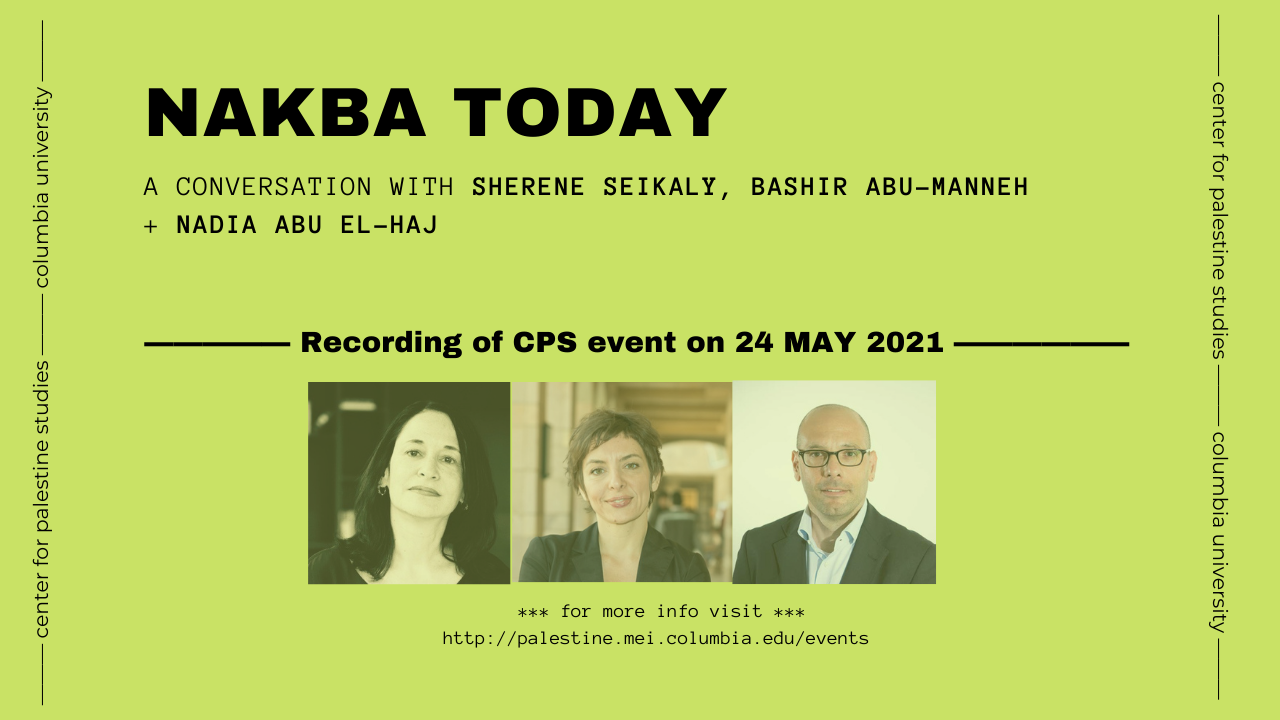If you missed our conversation with Sherene Seikaly, Bashir Abu-Manneh and Nadia Abu El-Haj about recent events in the ongoing Nabka you can watch the recording now on the Center’s YouTube Channel.
Bashir Abu-Manneh is Head of School of English and Reader in Postcolonial Literature at University of Kent. He is author of The Palestinian Novel: From 1948 to the Present (2016) and Fiction of the New Statesman, 1913-1939 (2011), and is editor of After Said: Postcolonial Literary Studies in the Twenty-First Century (2018).
Sherene Seikaly is Associate Professor of History at the University of California, Santa Barbara. She is the author of Men of Capital: Scarcity and Economy in Mandate Palestine (2016). Seikaly is following her great-grandfather in her forthcoming book titled From Baltimore to Beirut: On the Question of Palestine. His trajectory from nineteenth century mobility across Baltimore and Sudan to twentieth century immobility in Lebanon places the question of Palestine in a global history of race, capital, slavery, and dispossession. She is co-editor of Journal of Palestine Studies, senior editor and co-editor of Jadaliyya.
Nadia Abu El-Haj is the Ann Olin Whitney Professor in the Departments of Anthropology at Barnard College and Columbia University, and Co-Director of the Center for Palestine Studies at Columbia. Abu El-Haj has published two books: Facts on the Ground: Archaeological Practice and Territorial Self-Fashioning in Israeli Society (2001) and The Genealogical Science: The Search for Jewish Origins and the Politics of Epistemology (2012). While Abu El-Haj’s two books to date have focused on historical sciences (archaeology, and genetic history), her third book, tentatively titled, Soldier Trauma, The Obligations of Citizenship, and the Forever Wars (Verso, forthcoming) examines the field of (military) psychiatry, and explores the complex ethical and political implications of shifting psychiatric and public understandings of the trauma of American soldiers.

